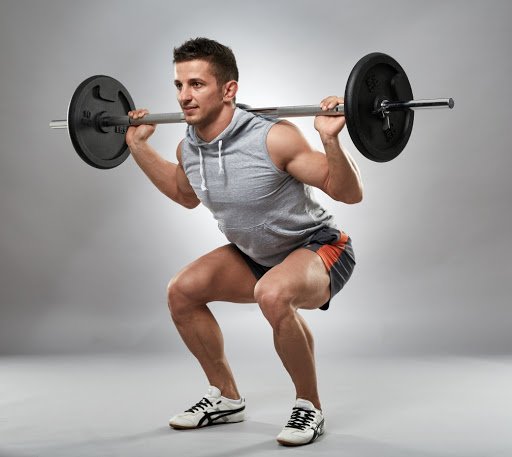Are squats good to do if you have a sore back?
Squats are a brilliant exercise that target all the major muscles groups of the body.
However, there is a lot of conjecture of whether someone suffering from lower back pain should make squats a part of their training regime.
Some practitioners and fitness experts advise to avoid squats if you are suffering from a sore back, whilst others recommend doing squats as a remedy to fix your sore back.
There are many different types of back pain, both different causes and different sources of the symptoms/ pain that a back-sufferer experiences.
We will take a closer look at the for and against doing squats, then draw relevance to the cause and symptoms of back pain and how varying conditions respond better or worse after doing squats.
The argument for doing squats to fix your sore back stems from the belief that all back pain is created due to muscular imbalances in the body. Given squats are the most dynamic functional compound exercise, that targets all your major postural muscles, carrying them out is believed to target the underlying cause of your back pain.
The argument against doings squats stems from the fact that your body is too weak to handle a dynamic functional compound exercise, therefore the excess load will be placed on your back potentially creating further damage and pain.
So, one thing that the two different arguments agree on is that the cause of the back-pain complaint stems from muscular weakness.
From our perspective, the underlying postural weakness can result in different symptoms of lower back pain. Due to the lack of support, the back is placed under excess load, which leads to restriction and pain in the structures of the lower back; the muscles, joints, ligaments.
What adds to the confusion is that some back-pain sufferers get fantastic relief from doing squats, whilst others are left with a painful ache or spasm that can last for days. Further to this, many back sufferers can feel great most of the time doing squats, however every now and then they get a severe flare up after carrying out squats for no explained reason.
So, if you are doing squats, and they free your back up making you feel better and stronger. Our advice is to keep doing them. This typically suggests that you have postural weaknesses present that cause you back pain, however not to the extent that you cannot carry out a functional compound exercise. Get a trained therapist or instructor to take an eye over your technique, gradually build strength over time and strengthen your postural imbalances.
If you are doing squats and every now and then you flare up for no known reason, then you are most likely not posturally strong enough to consistently carry out squats. Back flare ups can occur due to you being fatigued at the time of doing squats, meaning on top of the already weakened postural muscles, you have further lack of support due to the fatigue.
If you have been doing squats for a while and you are still getting occasional flare ups, this would suggest that your technique needs altering as you are not successfully targeting the weakened postural muscles.
Our advice is to seek professional advice on what exercises you can do to assist your squatting technique, so you can start to overcome the underlying postural weakness.
If you cannot squat at all without increased pain, then your postural weakness is to the point where you cannot support the weight of your body. All the load is placed upon the lower back and its structures. If you fall into this category your path to leading a healthy pain free lifestyle is much more difficult, definitely not impossible, just more difficult than those who are still strong enough to build strength with functional compound exercises such as squats.
Back Solution across America has a proven record with acute and chronic back pain sufferers exceeding in excellence across the country. We have treated thousands of patients that range from Olympic athletes, professional athletes as well as everyday pain sufferers. Our rapid growth across the country will ensure a local clinic will be in your area soon to address you acute and chronic back pain.

